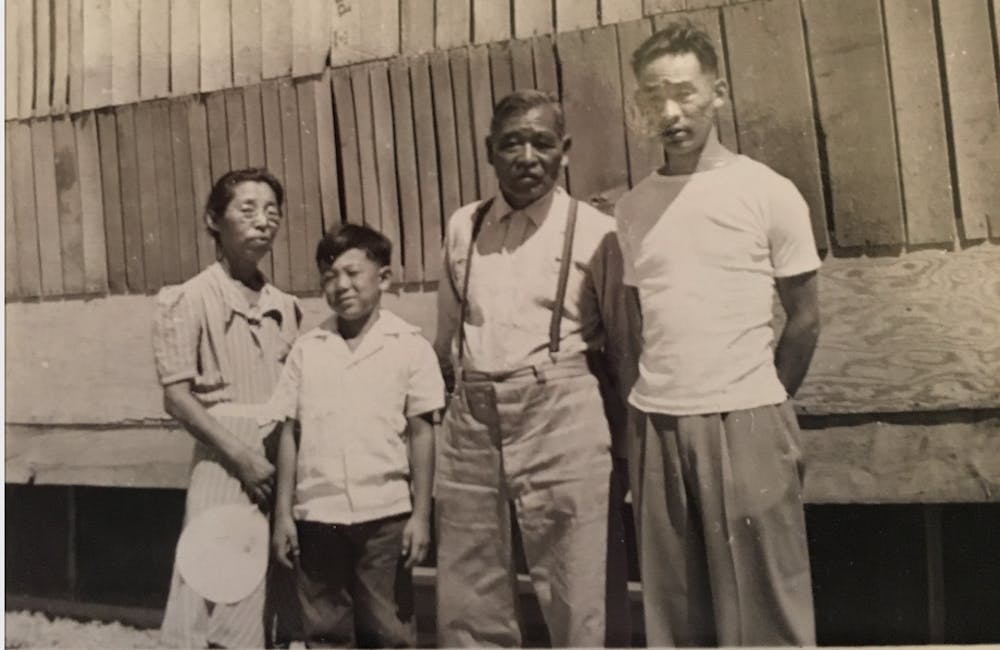On Feb. 19, 1942 President Franklin D. Roosevelt signed Executive Order 9066, enacting the removal and incarceration of over 120,000 people of Japanese descent on the West Coast. This past Sunday marked the 75th anniversary of Executive Order 9066 and the annual Day of Remembrance for the internment of Japanese Americans.
The anniversary could not come at a more relevant and momentous time in our nation’s history. As we grapple with a new administration’s policies, we must watch out for the racial prejudice that characterized the internment experience.
As a fifth generation Japanese American, I’ve grown up surrounded by stories of the internment camps. My family was imprisoned at Tule Lake, a camp in Northern California. My grandfather was just six years old; my great-aunt was two and my great-uncle was four.
It always shocked me how innocent civilians were uprooted and forced to live in horrible conditions, in barracks and in deserts around the country. And I wondered: How could America have failed its own people to such a terrible extent?
Appalling events in American history often are the result of unfounded fears. During World War II, there was no evidence that Japanese-Americans posed a threat to the United States, yet people cited national security as the justification for interning all people of Japanese descent. Similarly, people of Muslim faith do not pose a threat to the United States, yet some claim that an immigration ban is necessary to protect the country.
Using military necessity as a front for racial discrimination is a mistake. The U.S. government itself has admitted this. As a result of pressure from the Japanese-American community, President Reagan signed into law the Civil Liberties Act of 1988 which granted financial reparations and an official apology to those who were interned.
“These actions were carried out without adequate security reasons and without any acts of espionage or sabotage documented by the Commission, and were motivated largely by racial prejudice, wartime hysteria, and a failure of political leadership,” the document states. It goes on to say, “For these fundamental violations of the basic civil liberties and constitutional rights of these individuals of Japanese ancestry, the Congress apologizes on behalf of the Nation.”
The passage of the Civil Liberties Act was a step forward for our nation. And we continue to progress. It heartens me to know that today, federal courts are fighting the executive order and protesters continue to voice their opposition against the immigration ban. This shows that we are in fact living in a better, more just America than the one my family lived in 75 years ago.
But that doesn’t mean the internment experience cannot happen again. In fact, Korematsu v. United States, a historic case examining the constitutionality of Executive Order 9066, was never overturned. So even though we say “never again” to the internment camps, there is a real possibility something similar could occur in the future.
That is why we must be vigilant in protecting the civil rights and liberties of all people, particularly those who are targeted and scapegoated. That is why I will continue to stand up for Muslim Americans, for those affected by the travel ban and for all of those unjustly made the victims of prejudice.
I never imagined that a day would come when I would need to fight for the rights that my family was denied. But here I am, 75 years later in 2017, doing exactly that.
I often find myself reflecting on the legacy of internment. It is part of my heritage and my history. It has characterized my complicated relationship with our nation and our Constitution. But moreover, it has made me determined to ensure that the discrimination and injustice my family and many others faced is never repeated.
Morgan Ome is a sophomore Writing Seminars and Italian double major from Hillsborough, Calif. She is a member of the Japanese American Citizens League.





